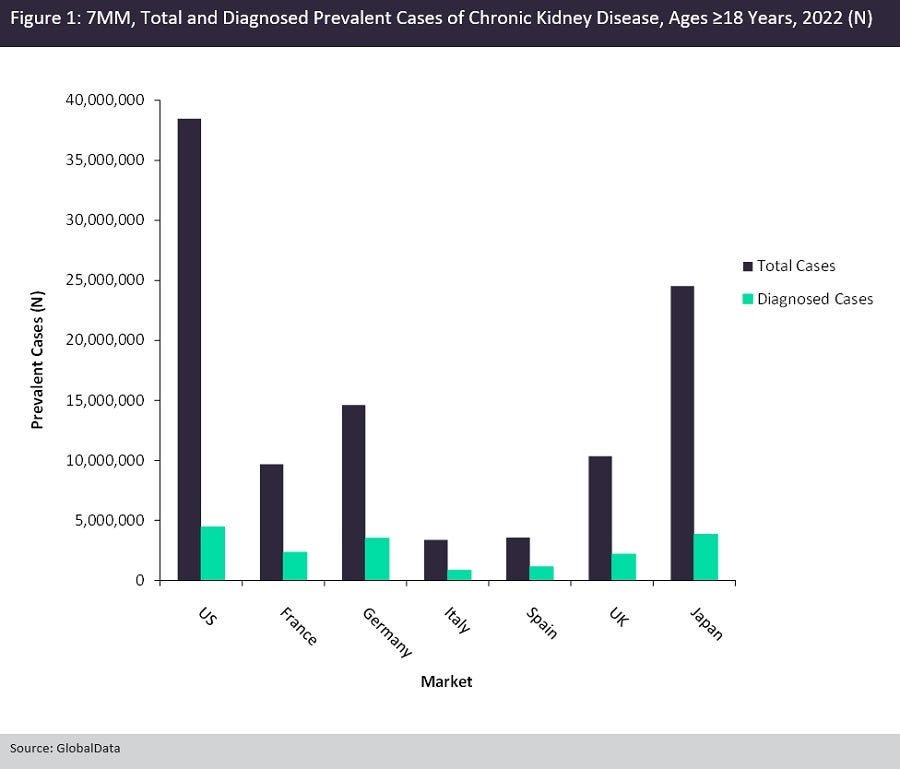Chronic kidney disease (CKD) occurs when kidneys are damaged and cannot filter blood properly. Patients with CKD have an increased risk of heart disease, hospitalisation and mortality. In the seven major pharmaceutical markets (7MM: the US, France, Germany, Italy, Spain, the UK and Japan), GlobalData epidemiologists found that only about 20% of CKD cases will be diagnosed by the end of this year, with the US experiencing the highest number of undiagnosed cases due to the large number of CKD cases in this market.
In the 7MM combined, GlobalData epidemiologists forecast nearly 105 million total prevalent cases of CKD this year, only 18 million of which will be diagnosed by the end of the year (as shown in Figure 1). This forecast data demonstrates that approximately two in every ten individuals with CKD get diagnosed by a physician. This low diagnosis rate is being driven primarily by a low CKD awareness among both patients and physicians, hindering early diagnosis and treatment.
According to a US study published by Chu and colleagues in the American Journal of Kidney Diseases, CKD awareness ranged from 9.6% in low-risk groups to 44.7% in high-risk groups based on data from 2011 to 2016. CKD awareness was measured by answering ‘yes’ to the question “Have you ever been told by a doctor or other health professional that you had weak or failing kidneys?”, while risk was assessed using the Kidney Failure Risk Equation (KFRE). The KFRE predicts kidney failure risk over time based on age, sex, estimated glomerular filtration rate (eGFR), and urinary albumin-creatinine ratio (UACR).
These study findings were based on an analysis of the Centres for Disease Control and Prevention’s (CDC) National Health and Nutrition Examination Survey (NHANES) data from between 1999 and 2016, a nationally representative cross-sectional survey of nearly 100,000 noninstitutionalised US civilians. The results of this study are concerning, indicating that CKD awareness is low not only in low-risk patients, but in high-risk patients as well. In addition, the study authors found that CKD was less commonly discussed than hypertension or diabetes, and that most CKD discussions focused on laboratory results rather than on risk factors and prevention; this disconnect in patient and physician awareness is likely driving the gap between diagnosed and undiagnosed cases.
The accurate and timely identification of CKD cases in the primary care setting is critical for improving patient outcomes. Future efforts should prioritise addressing gaps in physician awareness. Finally, educational programmes should aim to increase both patient and physician awareness of CKD, diagnosis, treatment and management.


US Tariffs are shifting - will you react or anticipate?
Don’t let policy changes catch you off guard. Stay proactive with real-time data and expert analysis.
By GlobalData




